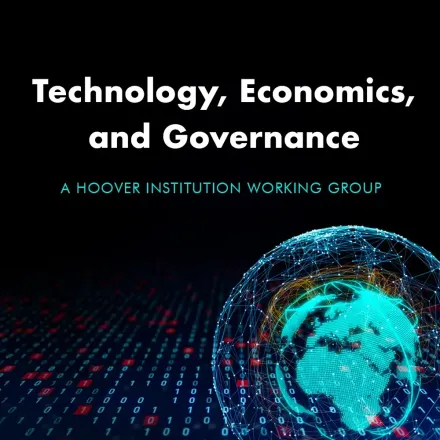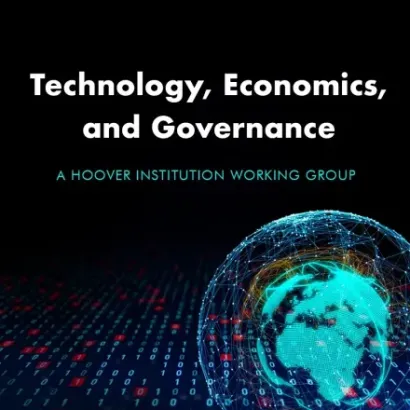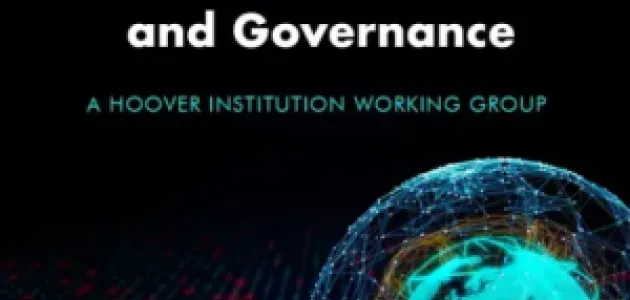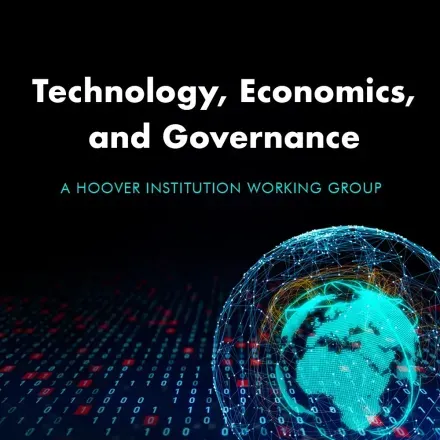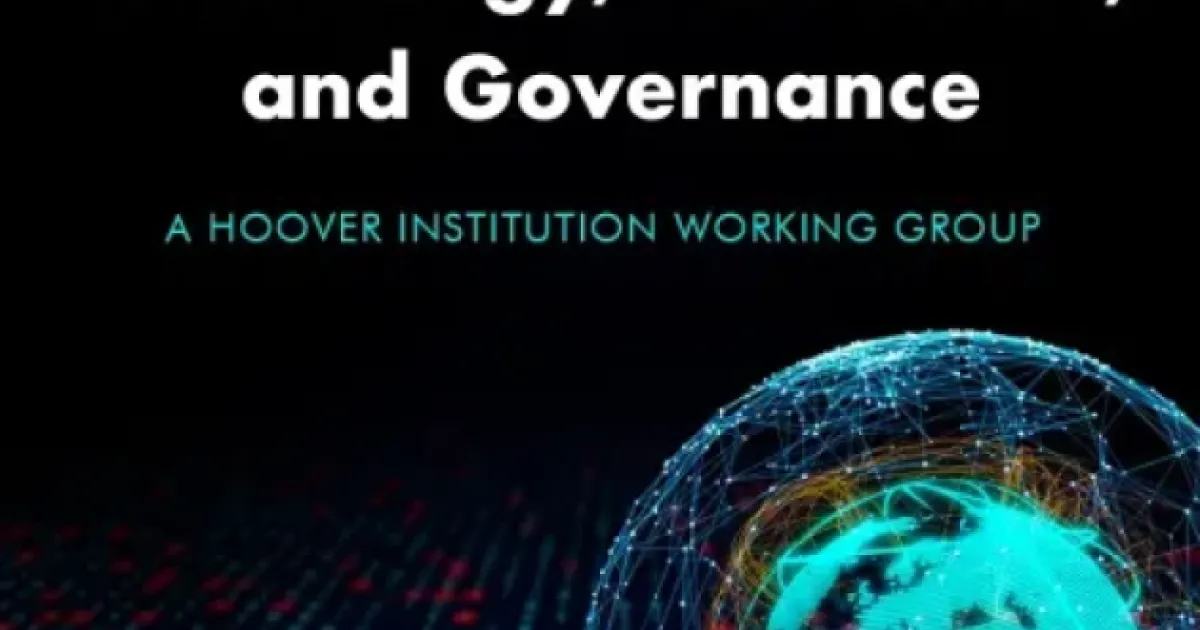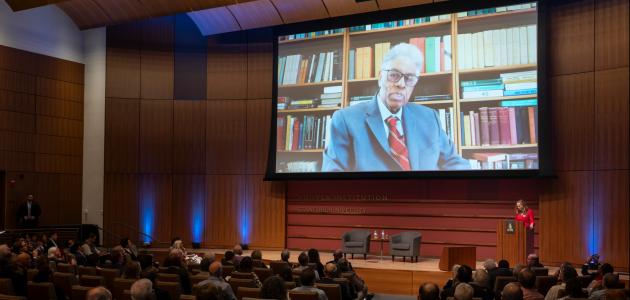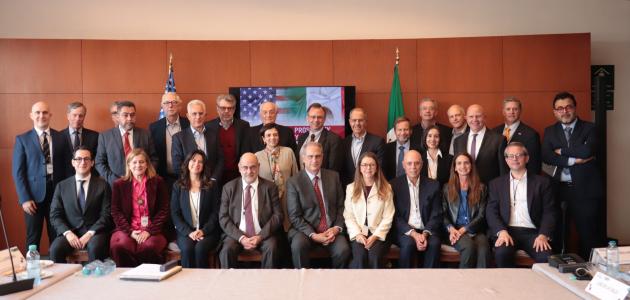A weekly digest of the latest news and research related to the work of the Technology, Economics, and Governance Working Group. Topics covered in the digest include cybersecurity, domestic regulation, innovation, international competition, social media disinformation, and the California exodus.
The topics covered in this week’s roundup include continued reporting on rising tensions between the US and Russia, Chinese innovation and the launch of a new digital currency, new startup funding records, and one historian’s analysis of the key ingredients to build the next Silicon Valley. Notably, the US government is also exploring new avenues to mitigate cyber vulnerabilities and address the growing threat of domestic terrorism.
Industrial Policy, International Competition and Cooperation
Energy Dependence Ties Europe’s Hands in U.S.-Russia Crisis | The Wall Street Journal
After the first installment of negotiations between Russia and the United States concluded early this week without settling fears of a Russian invasion of Ukraine, Western Europe’s energy dependencies have garnered renewed attention. Since Russia is a major supplier of gas and oil to most of the continent, European leaders are unlikely to endorse economic penalties against Russian energy as a method of deterrence. Given Europe’s insufficiently diverse supply chain and Russia’s proven willingness to leverage gas exports for geopolitical aims, the consequences of sanctions could be devastating for many of America’s closest allies.
China’s Digital Currency: Adding Financial Data to Digital Authoritarianism | The Center for a New American Security
A recent report from The Center for a New American Security considers the geopolitical implications of a new initiative by the People’s Bank of China to launch a central bank digital currency (CBDC). As the popularity of cash declines among Chinese consumers, Beijing hopes to leverage the rise of mobile payment systems to implement a new, digital form of fiat currency called the Digital Currency/Electronic Payment (DCEP). Although few details are publicly available, the DCEP system would grant the regime increased surveillance capabilities and greater oversight over private transactions. The authors of the report advise American policymakers to closely track the DCEP’s development and formulate strategies to counter China’s efforts to export digital authoritarianism. A video explainer released with the report is also available here.
Domestic Regulation
A Facebook antitrust suit can move forward, a judge says, in a win for the F.T.C. | The New York Times
On Tuesday, Judge James Boasberg permitted the Federal Trade Commission’s antitrust lawsuit against Facebook to move forward. The FTC claims that the company has abused a monopoly in social media, utilizing a “buy-or-bury” strategy to eliminate competitors. After Judge Boasberg dismissed the FTC’s original suit against Facebook last year, citing a lack of evidence, the Commission refiled the case in August. Additional data showed “that Facebook’s share of the daily social media market had exceeded 70 percent since 2016” and it achieved market dominance by purchasing rivals such as Instagram and WhatsApp. While Judge Boasberg’s decision is significant, it will be years before a verdict is reached, and Facebook has already assembled a robust legal defense.
Innovation
China’s Startups Are Awash with Money as Beijing Shifts Focus to ‘Hard Tech’ | The Wall Street Journal
Despite China’s recent crackdown on consumer-internet firms like Alibaba, Beijing’s venture capitalists have flooded tech startups with enormous amounts of funding. China’s funding boom appears to be part of a new national strategy to prioritize “hard-tech” firms—companies that specialize in areas that more directly serve Beijing’s national interests. China’s support for entertainment and e-commerce firms has waned in favor of advancing its manufacturing capabilities and funding information technology. These investment trends align with the country’s latest five-year plan, which calls out technology development as a component of national security.
How countries are leveraging computing power to achieve their national artificial intelligence strategies | Brookings
A new report from Brookings offers a universal measure of AI readiness that was developed by compiling country-specific data on AI funding, access to computing power, and research initiatives. The researchers grouped nations into four different readiness categories according to two multivariate factors: investment, which included public and private funding sources, and technology and research, which measured both AI assets (e.g., supercomputers) and the quantity of related research. While the model indicates that the United States has a slight lead over China, the researchers predict that China’s population advantage will soon cause America to lose its advantage.
Cyber
After Log4j, Open-Source Software Is Now a National Security Issue | Gizmodo
On Thursday, top tech executives and Biden administration officials met at the White House to discuss the security risks of open-source software. Open-source software is an attractive tool for private developers, as it is free to use and may be edited without restrictions. However, these projects usually lack funding and oversight, and serious risks can emerge if many large systems rely on the same insecure programs. The DC meeting comes after a major vulnerability was discovered in log4j last month, a popular open-source Apache logging library that is ubiquitously used in the tech industry.
Most federal agencies still aren’t meeting cybersecurity targets | Federal Times
The Government Accountability Office released a report on Tuesday that many civilian federal agencies have failed to implement the cybersecurity improvements that are required by the 2014 Federal Information Security Modernization Act (FISMA). Although there was universal improvement among the twenty-three monitored agencies, only seven met FISMA’s information security standards. The organization also reported that cybersecurity weaknesses were identified during recent reviews of the Department of Defense.
California
The Secret to Building the Next Silicon Valley | Wired
Margaret O’Mara, a professor of history at the University of Washington, reviews Silicon Valley’s history, arguing that periods of high public spending on research and education during the Cold War were what built the Valley into a lasting tech center. O’Mara maintains that the capacity of tax breaks and industry subsidies to attract capital is secondary to the role of government investment. The next Silicon Valley, she says, will emerge from a sustained effort to fund technology as well as social goods like mass education.
Startups Raked In $621 Billion in 2021, Shattering Funding Records | Bloomberg
According to new data from CB Insights, global funding for startups reached $621 billion in 2021, more than double that of the previous year. While Silicon Valley and New York were home to the highest earners, developing tech hubs also saw large gains. Miami-based startups raised $4.6 billion last year—a more than twofold increase from 2020 and a ninefold increase from 2015.
Freedom of Speech, Domestic Democracy, and Extremism
Justice Dept. creating unit focused on domestic terrorism | The Associated Press
The Justice Department announced the establishment of a specialized unit focused on domestic terrorism early this week. In the aftermath of the January 6th insurrection, the rising threat of domestic extremism attracted the attention of many policymakers, but ambiguities in the U.S. criminal code have often complicated the prosecution of domestic terrorists. The new unit will augment the department’s existing counterterrorism resources.







